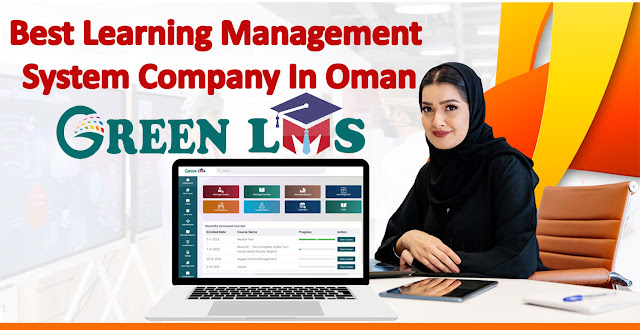The Ascendance of Mobile Learning & LMS Adaptation for Smartphones
In an era where smartphones are as ubiquitous as wristwatches once were, the landscape of education and corporate training is undergoing a seismic shift. The ascendancy of mobile learning is redefining the way knowledge is consumed, interacted with, and applied. It's not merely a trend but a significant evolution in the domain of learning — one that necessitates the optimization of Learning Management Systems (LMS) for the compact screens and dynamic interfaces of smartphones. This article delves into the rise of mobile learning and the pivotal role of LMS optimization in fostering an anytime, anywhere learning ecosystem.
Embracing the Mobile-First Learning Revolution
The surge of mobile learning is not an
overnight phenomenon; it's the culmination of the mobile-first revolution that
has permeated every facet of modern life. Today's learners demand flexibility,
and educational institutions, along with corporate trainers, are rising to the
challenge by recalibrating their LMS for mobile responsiveness.
The Convenience of Learning on the Go
The paramount advantage of mobile learning
is its convenience. Learners no longer need to be tethered to a desk; they can
engage with educational content while commuting, traveling, or from the comfort
of their homes. This convenience has ushered in an era where learning can
happen in the flow of life, not just during designated hours.
Personalized Learning Experiences
Smartphones offer a personal touch to the
learning experience. Optimized LMS
e-learning platform in Oman can leverage smartphone capabilities to
provide personalized content that suits the pace and preferences of each user,
employing data analytics to curate a customized learning journey.
The Imperative of LMS Optimization for Smartphones
As mobile devices become the primary tool
for online activities, the optimization of LMS for smartphones isn't
optional—it's critical. A mobile-optimized LMS must not only be accessible but
also provide an engaging and intuitive user experience.
Responsive Design: A Non-Negotiable Feature
Responsive design ensures that LMS content
is seamlessly displayed across various screen sizes and device orientations.
It's about providing an equitable experience that is coherent and functional,
whether accessed from a desktop or a smartphone.
Touchscreen-Friendly Interfaces
Smartphone users are accustomed to the
tactile intimacy of touchscreen navigation. An LMS company in Oman must offer
interfaces that are touch-friendly, with easy scrolling, swiping, and tapping
functionalities that are second nature to the modern user.
Streamlining Content for Mobile Consumption
Not all content that works on a desktop
will have the same impact on a mobile screen. The optimization process may
involve streamlining content and using mobile-friendly formats, such as
microlearning modules, which are concise enough for quick consumption yet
substantive enough to be impactful.
Leveraging Smartphone Features for Enhanced Learning
Smartphones come packed with a variety of
features that, if leveraged by an LMS, can significantly enhance the learning
experience.
Push Notifications for Engagement
Push notifications can be a powerful tool
for keeping learners engaged. They can prompt users to complete a lesson,
remind them of upcoming deadlines, or notify them of new content, making the
learning process more interactive and less intrusive.
Multimedia Capabilities
The multimedia capabilities of smartphones
can be tapped to deliver rich, engaging content. Video lessons, audio snippets,
and interactive graphics can cater to different learning styles and increase
retention rates.
Social Learning and Collaboration
Smartphones are inherently social devices,
and a mobile-optimized Best
LMS in Saudi Arabia can foster a community of learners. Discussion
forums, peer-to-peer interactions, and group projects can be facilitated
through the LMS, leveraging the connectivity that smartphones provide.
The Benefits of Mobile Learning and Optimized LMS
The impact of a mobile-optimized LMS is
significant and multifaceted, offering benefits that go beyond mere
convenience.
Increased Access and Inclusivity
Mobile learning breaks down geographical
barriers, granting access to those who might not have a computer or broadband
internet at home. It democratizes learning, offering opportunities to a broader
audience.
Just-in-Time Learning
The concept of just-in-time learning —
acquiring knowledge exactly when it is needed — is perfectly complemented by
mobile devices. Mobile-optimized LMS platforms can provide bite-sized
information that is easy to digest and apply in real-time scenarios.
Continuous Learning and Feedback
With mobile learning, the cycle of feedback
and improvement is continuous. Learners can receive immediate feedback on their
performance, allowing for rapid iteration and improvement.
Challenges in Mobile LMS Optimization
While the advantages are clear, optimizing
an LMS for mobile devices comes with its set of challenges.
Ensuring Consistency Across Devices
Creating a consistent learning experience
across the myriad of devices and operating systems is a challenge. It requires
diligent design and testing to ensure compatibility and performance.
Balancing Rich Content with Load Times
The balance between rich multimedia content
and mobile load times is delicate. Content must be engaging yet optimized for
quick loading, even on slower connections.
Security Concerns
Mobile devices can be more vulnerable to
security breaches. Therefore, Ensuring that the eLearning company in Saudi
Arabia is secure, especially on mobile devices which are often used on
unsecured public networks, is paramount. The use of encryption, secure login
protocols, and data protection measures must be rigorously implemented and
continuously updated to safeguard sensitive information and maintain user
trust.
Interface Adaptation and User Experience
Crafting an interface that is not only
functional but also user-friendly on a smaller screen requires a deep
understanding of user experience (UX) principles. The LMS must facilitate an
intuitive navigation system that learners can use with ease, minimizing the
learning curve and potential frustration that could impede the learning
process.
The Future of Mobile Learning and LMS
The trajectory of mobile learning points
toward an increasingly personalized and AI-driven future. The integration of AI
can lead to adaptive learning paths that respond to the learner’s progress in
real-time, while augmented reality (AR) and virtual reality (VR) can provide
immersive learning experiences through smartphones.
Artificial Intelligence and Learning Analytics
AI can transform LMS platforms into
intelligent mentors capable of providing insights and personalized
recommendations. By analyzing user data, AI can predict learning outcomes and
tailor content accordingly. This can be particularly powerful in mobile learning,
where AI can optimize learning paths based on the individual's pace and
learning style, maximizing the efficacy of short, focused study sessions.
Immersive Learning with AR and VR
While still in nascent stages, AR and VR
have the potential to turn smartphones into portals to immersive learning
environments. These technologies can simulate real-life scenarios and provide
hands-on experience in a controlled, virtual space, enhancing the depth and
retention of learning.
The Role of 5G Technology
The rollout of 5G technology promises to
dramatically improve the mobile learning experience. Faster speeds and lower
latency will enable more complex learning activities to be performed on mobile
devices, including high-quality live streaming and interactive webinars,
without the need for Wi-Fi connectivity.
Designing for Sustainability and Continuous Improvement
As the adoption of mobile learning grows,
sustainability becomes a crucial consideration. This involves designing LMS platforms that are not only
technologically advanced but also have a low environmental footprint. Moreover,
a culture of continuous improvement, based on user feedback and engagement
metrics, must be cultivated to ensure that the mobile LMS remains relevant and
effective.
User Feedback Loops
Incorporating mechanisms for user feedback
directly within the mobile LMS can lead to continual improvements in
functionality and content. Users are the best resource for understanding what
works and what doesn’t, and their input is invaluable for the iterative design
process.
Analytics-Driven Enhancements
By analyzing how learners interact with the
LMS on mobile devices, designers and educators can identify patterns and
opportunities for enhancement. Analytics can reveal which features are most
used, which content is most engaged with, and where learners tend to drop off
or struggle.
Conclusion: Embracing the Mobile Learning Momentum
As we stand at the forefront of educational
innovation, the trajectory of mobile learning defines the path forward. LMS
optimization for smartphones is not merely a trend to observe—it's a wave to
ride. By harnessing the power of mobile technology, we can provide learning
experiences that are more engaging, accessible, and effective than ever before.
It's a commitment to not just keep pace with technological advancements, but to
leverage them in creating learning environments that inspire and empower.
For those ready to embrace the
transformation and take their learning strategies into the mobile domain, the
opportunity is ripe. Green LMS emerges as a conduit for this transition,
offering a robust, cloud-based platform that caters to the diverse needs of
modern learners.
Read more about how Green LMS
can be tailored for various applications:
Ready to experience unparalleled eLearning
in Oman with peace of mind? Click here for Lifetime Free Green LMS.
With Green LMS, secure and stellar e-learning
is not just a promise, but a guarantee. https://www.thegreenlms.com/book-a-demo/





Comments
Post a Comment